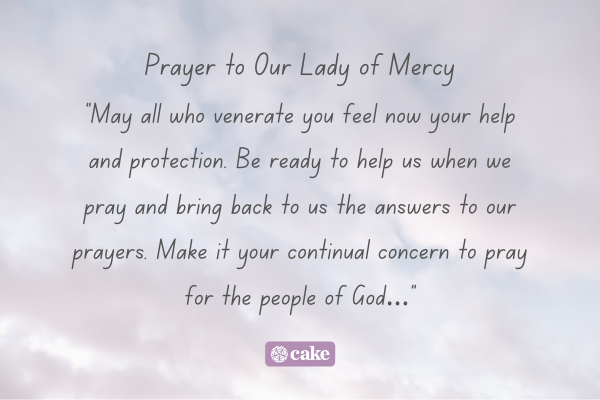Prayer is an ancient tradition that has been around for centuries. It has been used to connect people with their Higher Power, to calm the mind and to find peace. Prayer can be a powerful tool for turning a difficult situation around. It has the ability to connect you with your Higher Power and transcend any difficulties you may be facing. In this blog post, we will explore how prayer can help you find peace in your life, no matter what is happening. We will provide tips on how to get started and offer some advice on regular practice.
Prayer is an integral part of any spiritual practice
Prayer is an integral part of any spiritual practice, and it can be a powerful tool for peace of mind. When you pray, you are open to receiving guidance from your higher power. You can ask for guidance on specific issues or problems you may be facing, or simply request that your divine support help you live a peaceful life.
When you prayerfully reflect on the things that make you happy, you can cultivate a joyful and peaceful mindset. Praying also helps us connect with our innermost desires, which can lead to more fulfilling lives. Additionally, prayer can provide solace in times of distress or stress. And finally, it has been proven to improve mental health overall.
So whether you’re looking to achieve peace in your life or simply stay stress-free during tough times, praying is an essential part of any spiritual practice.
Different types of prayer
Prayer has been shown to have a positive impact on our mental and physical health. In addition to helping us cope with stress, prayer can also help improve moods and memory. Different types of prayer have also been shown to be helpful in different situations.
One type of prayer is contemplative prayer, which involves focusing on your inner thoughts and feelings. This type of prayer has been shown to increase happiness and peace in the heart. It can also help you connect with your Higher Self or God.
Another type of prayer is petitionary prayer. In this type of prayer, you ask for something specific—like peace for yourself or others. Petitionary prayers are often more powerful because they focus on what we want instead of just accepting what is given to us.
Finally, there is intercessory prayer—which involves praying for someone else. This type of prayer can be especially helpful when someone is facing a difficult situation that they cannot solve themselves. Intercessory prayers give them hope and help them feel supported by the community.
How to pray for peace
How to Pray for Peaceful Mind
When it comes to prayer, sometimes we may feel like we don’t know how to pray for peace. After all, what do we specifically ask for when we pray? Sometimes the answer seems so vague or general that it can be difficult to put into practice. However, there are specific things you can do and say when praying for peace that will help your prayers become more effective.
First and foremost, always remember that your intention when praying is vitally important. When you pray for peace, make sure that you are not only asking God for a particular outcome but also wanting His presence with you as you work towards achieving it. This will help create a peaceful space in which to pray and allow God’s will to be done.
Another thing to keep in mind when seeking peace is to focus on your relationship with God rather than the situation at hand. When you approach prayer with this mindset, it will help ground you in the present moment and reduce any feelings of anxiety or fear. This is an important step because focusing on the negative often leads to further anger and frustration instead of calmingness and understanding.
Finally, surround yourself with positive reminders of why hope exists even during challenging times
Brief History of Prayer
Prayer has a long and varied history. The word itself comes from the latin precari or “to seek help” from God. Ancient Greeks believed that through prayer, one could connect with the divine. Prayer was seen as a way to expunge negativity and bring about understanding, peace, and guidance.
Islamic tradition holds that Muhammad began praying shortly before his first revelation in 610 AD. He taught that Allah is One, unique in all respects, so there can be no intermediaries between man and God. Muslims are instructed to offer five daily prayers at prescribed times of day: dawn, noon, afternoon, sunset, and nightfall.
Christianity began with individuals seeking relationship with God- both individually and corporately- through prayer. Early Christians prayed for healing, deliverance from demonic possession, rain during drought conditions, protection against natural disaster (tornados included), crop fertility and many other things.
The Catholic Church formalized prayer into its own structure with the issuance of the Rule of St Benedict in 590 AD. This rule outlined how priests should pray for their congregants on behalf of Christ. In particular, they were urged to make specific petitions for blessings such as health and prosperity among others
Types of Prayer
There are many ways to pray, depending on your personal preferences and beliefs. Some people prefer to pray in silence, while others like to prayer with others. There are also many different types of prayers, like petitionary prayers or thanksgiving prayers. The following is a list of some common types of prayer:
Petitionary prayers are prayers that ask for something specific, such as a blessing for the person praying or forgiveness for someone else.
Thanksgiving prayers are often prayed after somebody has been blessed by God, typically during a religious service. They may include acknowledgements of what was given and gratitude for it.
Intercessionary prayers are usually requests made on behalf of other people, asking God to help them in some way. This can be done either privately or publicly.
Benedictionary prayers bless something before it is used or left alone. They can be simple or elaborate, depending on the tradition involved.
Benefits of Prayer
Prayer has many benefits for the mind and body. Prayer can help calm the mind, ease anxiety, and improve sleep. Prayer can also increase self-awareness and empathy, and promote spiritual growth.
Prayer can also help improve focus and concentration. According to some studies, prayer can even improve memory recall and thinking skills. Prayer also has a positive effect on heart health, reducing stress levels and improving feelings of wellbeing.
Prayer can be a powerful tool for healing. Prayer has been shown to reduce inflammation in the body, lower blood pressure levels, and relieve pain. In some cases, prayer has even been shown to cure illnesses.
The benefits of prayer are vast and varied, making it an invaluable tool for combating stress, improving mental well-being, coping with illness, and strengthening relationships with both gods and people.
How to Pray
How to Pray
When it comes to prayer, there is no one right way. It can be as simple or as complex as you want it to be. The following tips are just some basic pointers that may help you get started:
1) Begin with a prayer of thanksgiving. Thank God for the good in your life and ask for guidance and protection during the prayer.
2) Ask for forgiveness. This is especially important if you have had a hard day or if you have been feeling stressed or angry. Expressing your feelings of guilt, sadness, or regret can help release any negative energy that has been stored up.
3) Connect with your Higher Power. This could be anything from a god or goddess, to nature, to an inner voice. Whatever feels right for you – just make sure that you connect with something larger than yourself and focus on what you want to pray for rather than on what you don’t want.
4) Make requests and offer prayers of thanksgiving for all that is good in your life – both large and small things. Whether it’s getting through a tough time without too much damage done, being given success in your work or relationships,
Prayer for Peaceful Mind
Prayer can help create a peaceful mind. There are many ways to pray, and each person’s method may be different. The following is a basic prayer that can be used for peace:
God, please give me a peaceful mind.
Please let my thoughts be positive and helpful.
Please keep me safe from harm and negativity.
Please give me strength to overcome any challenges I face.
Types of prayers for peaceful mind
There are many types of prayers for a peaceful mind. One type is called the “Gentle Mind Prayer”. This prayer consists of three phrases: “May I have a calm, gentle mind,” “May my thoughts be kind,” and “Thank you for your peace.” Another type of prayer for a peaceful mind is the “Prayer of Protection.” This prayer asks for protection from harm, worry, and other negative emotions. A final type of prayer for a peaceful mind is the “Prayer of Grace.” This prayer requests divine help in overcoming any challenges or obstacles that may come up during the day.
Guidelines for praying for peaceful mind
1. Pray for peace every day.
2. Ask God to help you learn to pray forpeaceful mind.
3. Pray for the Holy Spirit to help you cultivatea peaceful mind.
4. Make a prayer list of things you would liketo change about your own mind and heart,and pray specifically for these things daily.
5. Meditate on Gods word and His promisesof peace and salvation throughout the dayand night.
6. Share Peace Prayer Guides with familyand friends, so they can also begin prayingfor peaceful mind together!
How to pray for peaceful mind
There are many different ways to pray for a peaceful mind, and the best way to find what works for you is to experiment. One of the simplest ways to start is to simply repeat a simple prayer like this: “Please give me a peaceful mind.” This type of prayer can be used in any situation where you feel agitated or stressed, and it can be helpful in times of difficulty or stress as well. You can also use prayers specifically designed for calming your mind, such as prayers for peace, strength, and wisdom.
Another way to calm your mind is by practicing relaxation techniques. Some people find that deep breathing exercises help to relax them, while others find that music or aromatherapy helps them to relax. There are many different relaxation methods available, so it’s important to find one that works best for you.
Finally, it’s important to remember that prayer isn’t only about asking for things; it’s also about receiving blessings from God. When you pray, please remember to focus on your own needs as well as those of others. If you’re feeling overwhelmed or helpless during a difficult situation, try praying for strength and guidance instead of asking for something specific. Prayer is an incredibly powerful tool, and if used correctly
When it comes to maintaining a peaceful mind, prayer is an invaluable tool. Prayer can help you focus on your goals, connect with loved ones and deities, and receive guidance and support. Whether you are new to prayer or have been practicing for years, finding ways to incorporate prayer into your life will undoubtedly improve your mental health and well-being. Thanks for reading!






